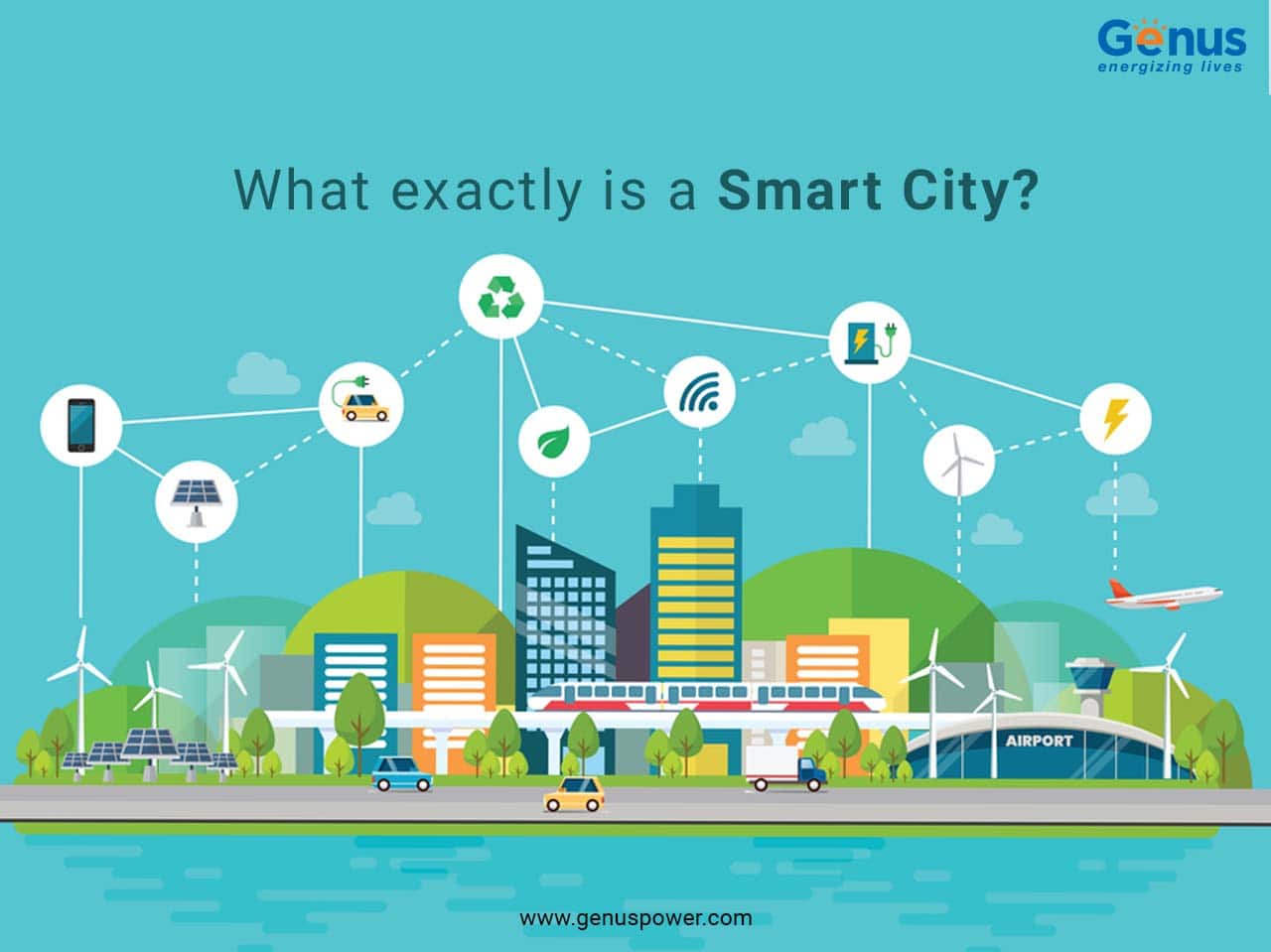
Lately, there’s been a whole lot of buzz surrounding the concept of a smart city, what with the whole “Smart Cities” mission India has embarked on. Since the term was coined, there has been widespread confusion as to what it is. Is it a futuristic city with flying cars and robots? Will the city have its own computational brain? Well, in reality, it’ll have a little bit of both, plus some more. But flying cars? We still have a long time before we see them become an everyday reality.
So, to help you understand what smart cities and smart technologies really are, including smart grid solutions and IoT, here’s a little primer on the concept, and how it’ll change urban life for good.
Smart cities are what you get when you mix cutting-edge technology, urban planning, and infrastructural development together. Everything’s smart – from transportation and utilities to waste management and social infrastructure.
Essentially, for such a city to work, you need to have an intricate, end-to-end network of IoT-based devices for data collection and resource management. The data in question is collected from the civilians, the devices they use, and other assets, which are processed and analyzed to manage and run the city’s transportation infrastructure, power plants, water supply, crime management, waste management, educational infrastructure, etc.
The bottom line is to improve the citizens’ standard of living through intelligent technology. Even the energy department has had many new technologies cropping up, such as smart grid services, to improve the overall efficiency and service levels, enhance customer satisfaction, and reduce the operational costs of the smart city.
As per a McKinsey 2018 report, incorporating smart technologies can have a tremendous positive impact, as much as 30%, on quality of life indicators – safety, connectivity, environment, cost of living, and health.
Let’s understand how by discussing some key benefits smart cities bring to the table:
Safer Cities
Smart, interconnected technology like Wi-Fi integrated surveillance cameras and IoT can massively improve resident safety and keep crime at bay. Even law enforcement can tap into the stream of data provided by these smart technologies for investigative and surveillance work.
Other than providing a constant visual feed, surveillance programs can also be programmed via IoT and machine learning-based algorithms for facial recognition, number plate recognition, smoke alarm triggering, and even locking and unlocking doors. In short, civilians can live a safe, worry-free urban life.
Improved Energy Efficiency
With urban population growth showing no signs of slowing down, efficient usage of limited natural resources will become a problem one way or the other. With smart technologies, cities now have the option to conserve precious resources and cut down on needless wastage.
For instance, homes can be equipped with smart meters for judicious energy usage. City administrations can use smart sensors and IoT-based technology to identify and locate the source of water leaks in pipes and enable quick repairs. Plus, you can even configure the street lighting with intelligent algorithms to adjust their brightness based on civilian footfall and traffic. The possibilities to achieve sustainability are endless.
Enhanced Traffic Management
Let’s face it; traffic is one of the worst challenges civilians face in the city. However, smart cities offer many intelligent fixes to the problem. For starters, with real-time data, traffic administration can conveniently adjust the public transport routes to accommodate private vehicle traffic. Moreover, smart traffic lights can take into account the current traffic and manage the congestion accordingly.
Residents can also use integrated smart apps to know the real-time location of trains, buses, or cabs and plan their travel accordingly to mitigate foot traffic.
Better Health
Smart technologies can also pave the way for better healthcare. For instance, the city administration can install air quality sensors across the smart city and take necessary interventions in areas that need reduced emissions. Plus, civilians can have access to healthcare apps with video conferencing features via which they can consult their doctors in case physical visits aren’t feasible. City officials can also blast important public health-related messages like vaccine availability.
As you can see, life in smart cities can feel like a dream coming true – faster commute, sustainable energy infrastructure, on-the-go app access to facilities, and better safety. Suffice to say, smart cities are the future of the urban lifestyle.
We, at Genus Power, have the right solutions to make smart cities a reality. From smart meters to smart grids, check out the Genus Company products on our website. Or, get in touch with us today to upgrade your metering solutions.